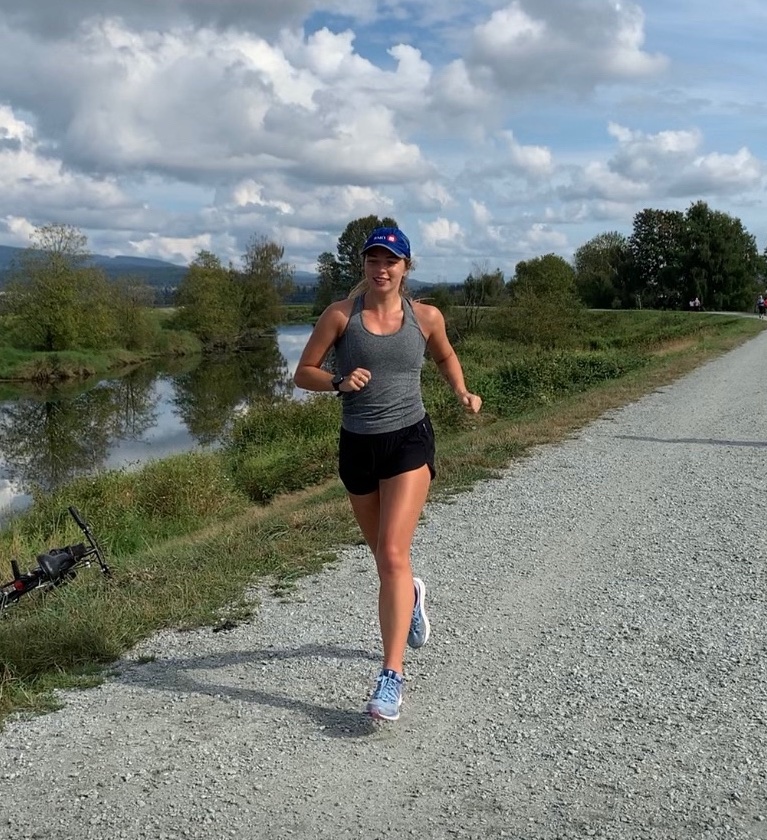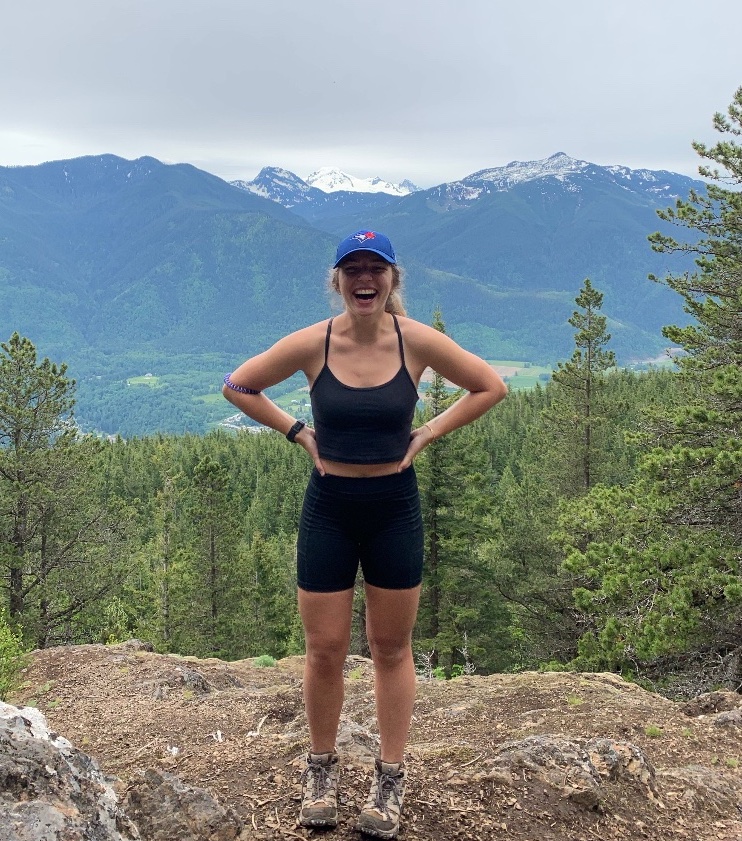Hi, my name is Rachel. I’m currently 24 years old, but it started when I was young. “It” is in reference to my perfectionist tendencies. I started to have high expectations for myself in all aspects of my life in high school and was starting to come to think that others held these expectations of me as well. I was a high achieving academic and athlete in my youth, and the external praise I received encouraged me to keep going. I’ve always played at the top level of sport. I played at the highest level club available for soccer in high school. I competed in the USport league for cross country in university. I’ve never received a B in school. I have been a straight A student since elementary school, and that continued into my university degree. I wanted to be the best, always. I never thought that would have been a negative thing.
I started to hold these expectations for my appearance when I was about 15 or 16 years old. All I saw in the media and in sport were these thin, muscular bodies and I wanted it for myself because that was the high standard I wanted to achieve. I’ve always been a muscular individual, but I started noticing that these people I saw had smaller waists and legs, so I wanted that as well. I saw these characteristics in my friends, in the media, and in athletes. My thighs touching made me self-conscious, and when I looked at my stomach, all I saw was a lack of shredded abs. I was obsessed with changing these things about myself.
My excuse was health and performance.
“I want to eat healthier, run faster and be stronger!” is what I told everyone.
In reality, I wanted to be perfect. I wanted the trifecta: smart, athletic, beautiful. So, in high school, I reduced my calories. I skipped breakfast. I went to the gym before soccer practice and worked out for an hour before my two-hour soccer practice. I stopped eating even if I was still hungry.
I started losing weight, but I kept my muscularity so I didn’t fit the definition of “anorexic”. I was actually lifting pretty heavy weight for how small I was, but it took all my energy and willpower to do it. In the back of my head, I knew something wasn’t “right” with how I was choosing to eat and think, and I actually talked to my mom about it and reached out for help. The “help” I received was a man sitting in a chair in an office asking me questions from a questionnaire about whether I had an eating disorder or not.
I lied to every question.
I started getting angry that a series of questions was what I was being reduced to. That a man with no idea what I was going through was going to diagnose me with some arbitrary answers I gave him. That the complicated and nuanced way my mind told me to throw up my food, and run faster, and be better, be better, be better was simplified down to a couple checked boxes. It would take years after this experience for me to find the help I truly needed.
Then university came, and suddenly I was in another city around new people and everything was harder. A new sport, harder classes and learning how to live on my own started crushing me. My anxiety was high. I never ate around other people when I could help it. When I did, it was a salad. Then I would go home, eat my “cheat” foods and proceed to throw them up after.
My run workouts were sporadic and my races were anxiety filled. I wasn’t fueling myself enough to perform well or consistently, and for three years, I followed the cycle of starve, run poorly, binge, hate myself, repeat. I was getting tired. Tired of trying to starve myself. Tired of failing to run. Tired of appearing like I had it all together. Tired of never having a moment of peace in my own head. I was 19 going on 20 at this point, and had been battling my eating disorder for 3-4 years. So, I gave myself the out. I allowed myself a whole summer of eating as much as I wanted and training enough to still be in shape for the upcoming cross country season, telling myself as soon as September came around I was going to diet down to be fast again. I stopped purging that year, which I personally believe was my biggest turning point because it was the first real step into discovering that I could change my habits. That summer was a hard yet beautiful one. I started ordering something other than salads and low calorie foods at restaurants, I ate later into the night, and I scheduled my runs when I felt good opposed to following a rigid schedule. I listened to my body for the first time in years and it thanked me for it. I gained weight slowly, as if my body was telling me “it’s okay, we can go slow. Be gentle with yourself”. I was still experiencing lingering anxiety about my body, racing, and feeling too big to be a runner, among other personal issues, despite feeding myself properly. The last pieces of the puzzle came together when I met my sport’s psychologist. I am beyond thankful I found her, that we clicked and that she gave me the tools to manage these lingering feelings of anxiety/discontent/being overwhelmed by my need to achieve more. It took months of practice with the tools she gave me to calm the turmoil in my head. Slowly, slowly, slowly, I started to feel better.
I never went back to my previous tendencies and I am beyond thankful it stuck, as I know that is often not the case. I started eating more over the course of the following years, and my body responded by giving me back my hunger cues, digesting food better and having more energy, while my mind allowed me to focus on my performance rather than how I looked. My last year of university running was full of personal records, consistent training and no running-related injuries, all while gaining almost 20lbs. In the almost two years I was feeding myself properly, I bested my 5km road time by almost 30 seconds, I raced the mile and 1500m in impressive times (for me), and ran faster and farther than I ever thought I could. I had cross country races that weren’t anxiety filled, and that I was genuinely proud of. I was running happy, finding peace in the miles rather than waiting for calories to burn. Outside of running, I became more social, I could genuinely enjoy holidays without food anxiety, and not have my mind full of thoughts about food and exercise. I am almost two years removed from university, and I can confidently say I’m happier, faster and stronger now, physically and mentally.
It is now 7 years since this journey started. It took me 4 years to realize I needed to change, 2 years past that to be comfortable talking about it, and another year to consider myself “recovered”. I put that in quotations knowing that it will be something that I will likely have to work through for the rest of my life. Despite having disordered thoughts re-surface throughout the years, telling me to restrict, diet and over-exercise, I’ve been able to fight them effectively and stop myself from falling back into that pit. I can contribute this to my psychologist for giving me the tools I needed, my family, friends and boyfriend for supporting me and loving me and meeting me where I was at, and to myself and my un-relenting need for my life to be more than an existence at battle with myself. Thank you for reading this far into my story, and I hope it gives you some peace knowing that change can happen.
- Rachel Garrett



